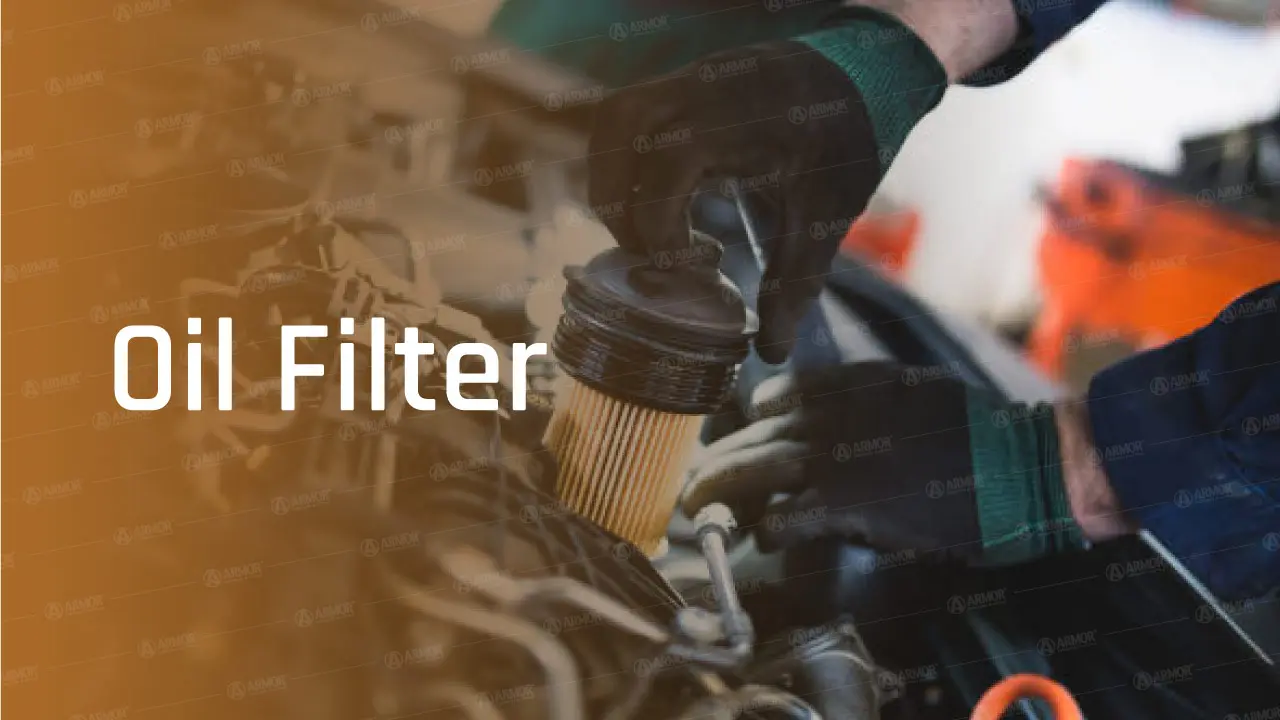
Oil Change Tip: Replace Your Oil Filter Every Time You Change Your Oil (typically every 10,000km for petrol cars, or every 15,000km for diesel cars).
Oil filters play a critical role in safeguarding and maximizing your engine's health. They trap contaminants like dirt, metal shavings, and combustion by products from circulating through your engine oil lubricant. This keeps the engine oil clean and minimizes wear and tear on vital engine components. However, even the best oil filters have a limited capacity, and following standard procedures for oil filter replacement is crucial for optimal engine performance and lifespan.
Car overhaul and oil change are part of routine car maintenance. In a car, there are many closed circuits, such as the oil circuit or the fuel circuit, which ensure the operation of the gasoline or diesel engine.
The filters have the function of preventing the pollution of these closed circuits by dirt or other particles. Changing filters is an essential service for any overhaul, to ensure engine longevity and best performance.
The interval between two oil changes recommended by the manufacturers varies from 10,000 to 30,000 km.
The oil filter constantly concentrates residual impurities (combustion, wear filings). Thus, you must replace them at each oil change.
Here are the main filters to change during an overhaul of your vehicle
With thermal stress and mechanical friction, many particles contaminate the engine oil, including small metal dust.
The role of the oil filter is to trap all impurities so that the oil retains its lubricating properties as well as possible.
A pump draws engine oil from the lower crankcase and injects it back under pressure through this filter.
Although changing this filter depends on your driving style, you must change it at least every year or every 15,000 km on a gasoline engine.
In hot areas of the world, they have premium oil that can endure high temperatures.
Many impurities can affect the fuel filter, whether during filling or by condensation in the tank.
The purpose of the fuel filter is to trap water, impurities, or rust particles, protect the engine, and prevent corrosion of the pump or the combustion chamber.
In principle, you must change a fuel filter every 40,000 km on a carbureted car, and every two years on an injection car.
In a diesel engine, a diesel filter is normally changed every 20,000 km, because engine oil for diesel engines is naturally richer in particles than gasoline fuel. However, some new optimized models can keep the oil and the filter for up to every 40 or 60,000 km.
For good combustion, you need an air-fuel mixture: these two compounds must be as pure as possible. The fuel filter purifies the fuel, while the air filter purifies the air entering the engine, just before the intake system.
An air filter retains all the particles of ambient air, such as dust, pollen, insects, or sand suspended in the air.
A clogged air filter no longer fulfills its role: the engine loses power, efficiency (increase in consumption) and can in turn become clogged (risk of engine failure).
The recommendation is to change the air filter every 20,000 km. Nevertheless, it is necessary to visually check the air filter at each oil change and to change it as soon as it shows signs of clogging, so you won’t face a big drop in the real value of the car.
Do not confuse the air filter and the cabin filter: the first filters the air for the engine, while the second filters the air for the driver and occupants of the vehicle.
Also called a pollen filter, the passenger compartment filter is in the ventilation system. It retains pollen and dust, for the healthiest and the least polluted passenger compartment.
Depending on the location, you should check the cabin filter at each service to see if it needs a change.
For example, if you live in a sandy country like Dubai, you should check the cabin filter more often. Besides, it’s good to ask yourself the question “should I change the cabin filter when thinking of selling my car for the best buyer experience?”
When it is dirty, bad odors and defogging problems appear in the passenger compartment. And when it's saturated, it can even damage the air conditioning motor.
As it helps to purify the air you breathe in the passenger compartment, changing it regularly is also good for your health!
Filters are essential for your vehicle if you want it to run smoothly. If there’s a problem in any of your filters, problems can appear and affect performance. You may notice a loss of power, black smoke, the oil light coming on, or even an engine failure.
For optimal combustion, an engine needs as clean air as possible. The air filter retains the dust that could pollute the mixture (causing a drop in performance and overconsumption), clogging the engine and, for the most abrasive of them, damaging it. Change it every year or every 20,000 km.
Just like you need a healthy body, your car needs to be healthy too. So take good care of it and pay attention to the minor details and never get anything for granted. Drive safe!
You need to change the oil filter every oil change. In fact some of the longer lasting engine oils suggest you change your filter out at normal oil change.
Choose high-performance engine oil for petrol powered engines manufactured by Armor Lubricants and keep your engine running smoothly.
